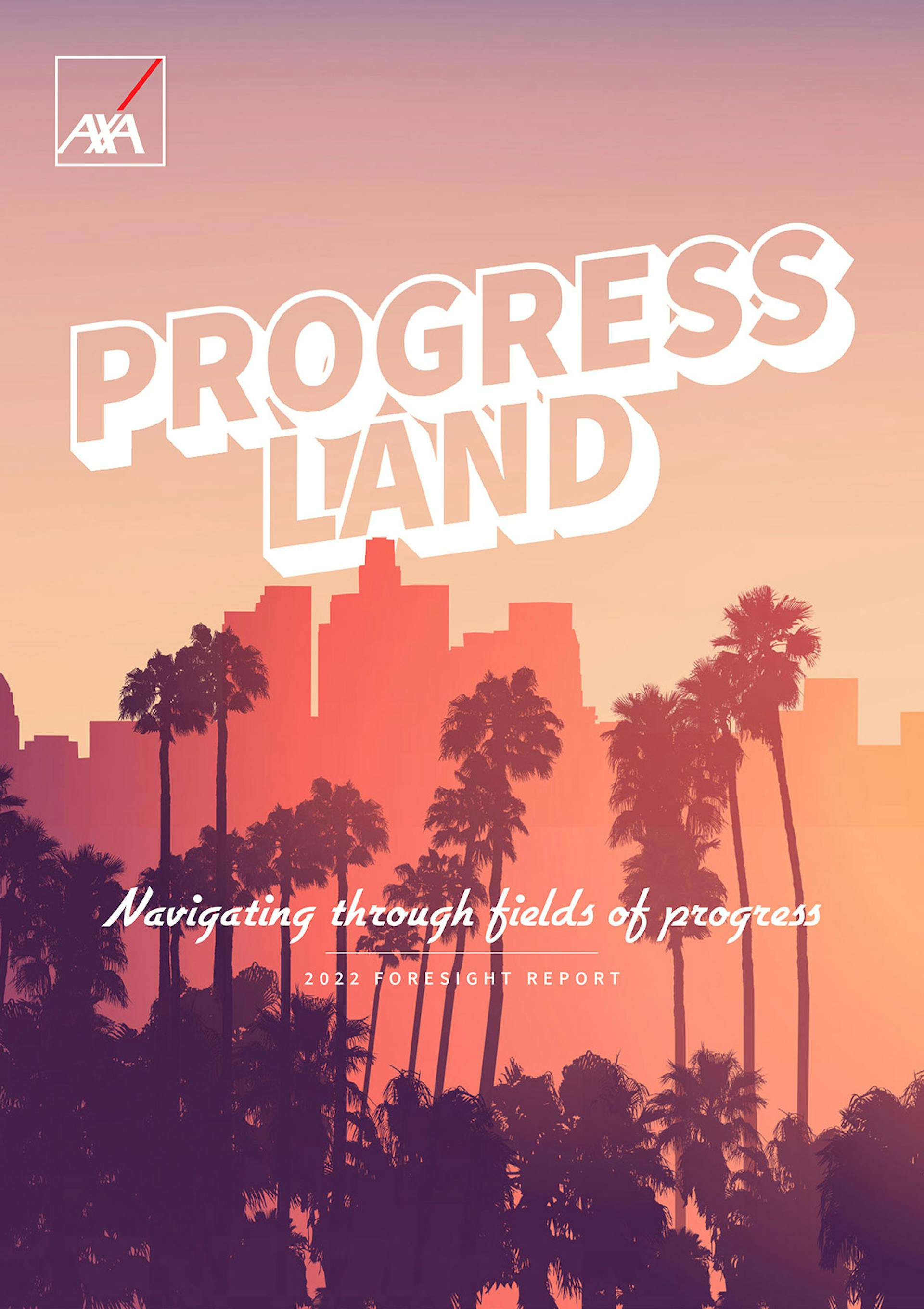
March 31, 2022
Bursting the GDP bubble: Which indicators would better measure life and happiness?
Global institutions have already challenged the use of GDP, trialling instead new sets of dimensions, such as wellbeing, inclusion, and sustainability to grade a nation’s strength. The way we measure long-term progress would also change.
4 minutes
Check out the 2022 Foresight Report
Now in its fourth edition, the AXA Foresight Report explores the different dimensions of Progress to best adapt and assess future challenges and opportunities. This magazine-like publication addresses multiple visions of progress by combining them with the major societal shifts such as the future of companies, the environment, social polarisation and mind health & well-being.
READOriginal Content: AXA Foresight Report
Global institutions, such as the World Bank and the OECD, have already challenged the use of GDP, trialling instead new sets of dimensions, such as wellbeing, inclusion, and sustainability to grade a nation’s strength. The way we measure long-term progress would also change. Discover some GDP alternatives here.
Institutional efforts
There is more to life than the cold numbers of GDP and economic statistics”. This is how the OECD introduces its Better Life Index, which is based on 11 topics – housing, income, jobs, community, education, environment, civic engagement, health, life satisfaction, safety, and work-life balance – all identified as essential in providing a good quality of life for citizens.
The World Bank’s Human Capital Index provides a new definition of human capital by quantifying the contribution of health and education to the productivity of the next generation of workers. Countries can use this index to assess how much income they are losing because of human capital gaps, and how much faster they can turn these losses into gains.
Corporations can make the difference
The corporate world too has been pushed to go beyond profit and to enhance their extra-financial performance.
Sustainability indexes enable investors to value the companies’ environmental and social responsibility. Instead of merely questioning criteria such as interest, security, and availability, the corporate world started wondering: where does this investment head to?
and what am I supporting really with my money?
[1]. As a side note, evidence shows that sustainable companies attract more attention in the financial markets and lead to an increase in the percentage of shares held by long-term investors[2].
ESG performance is becoming increasingly mandatory for companies – and more strictly regulated. Since 2017, the Task Force on Climate-Related Financial Disclosure (TCFD) has been developing recommendations for more effective climate-related disclosures. And on EU soil, it is now mandatory for companies with over 500 employees to disclose environmental and social information each year. To identify climate-friendly activities, a precise standardsetting criteria (the Taxonomy) was inaugurated, which will also inspire one for social objectives too.
Very soon, all companies will need to undergo these evaluations, which will be made more transparent. EU authorities will also require companies to tag
the reported information, to enhance its digital readability at a European level. Emerging trends for the future should call for more transparency from companies, combined with a datadriven evidence approach.
Live well – and long
Based on the assumption that people want to live well and live long, the World Happiness Report presents a matrix that can combine wellbeing and length of life to fully grasp the path towards human progress, while comparing the performance of different countries. This approach is named WELLBY (Well-Being-Year) and refers to individual wellbeing experienced over one year.
Future happiness becomes a mathematical equation:
(i is the individual, t is the number of years ahead; well-being is measured on a scale of 0-10; as the future is uncertain; δ represents a pure time discount rate).
Progress represents an improvement in the WELLBY score among present and future generations.
The mind health
revolution
As part of AXA’s mission to help people become the best version of themselves, the firm has devised an index that allows individuals to gauge their status in life. The newly released index looks beyond traditional indicators of wealth, such as money, property, salary, etc.
The AXA Mind Health Index tracks mental wellbeing based on:
- Wellbeing Outcomes: How satisfied people feel with their life and their experience of positive and negative emotions.
- Positive Actions: From how we eat, sleep and connect with others. Our lifestyle influences how we think, feel and act. The beliefs we hold about ourselves and the future also influence our wellbeing.
- Wellbeing Modifiers: There are some things that we have less control over but we know they can have an impact on our mental wellbeing; we refer to these as wellbeing modifiers. They include how we connect with others, the health care system and mental health conditions.
Along with scored factors, the Index also explores unscored factors that include:
- Mental health in the workplace
- Parenting
- Opinions/COVID-19
- Wellbeing (specific)
The combination of these factors results in four categories to track mind health:
- Struggling: absence of wellbeing in most areas, associated with emotional distress and psychological impairment
- Languishing: absence of positive wellbeing, characterized by lack of motivation and struggle to focus
- Getting by: presenting wellbeing but not in all areas
- Flourishing: pinnacle of mind health (score over 74%)
Scoring: the dystopian view?
Measuring our individual happiness sounds like a good way of gauging the overall socioeconomic health of a community or nation. But what if that concept was taken too far? What if your individual happiness score – or other such metrics – could be used to evaluate our actual or potential contribution to society? Could they then determine the rights and liberties we enjoy as a citizen?
Unsurprisingly, science-fiction writers have investigated that dystopian scenario. Their conclusions are chilling.
For example, the hit series Black Mirror invented a world where people can use eye implants and smartphones to rate each other from one to five stars for every interaction they have – whether with a service provider or even a friend. This has a direct impact on that person’s privileges and standing: the higher your overall rating, the better your standard of living.
In his novel Down and out in the Magic Kingdom
, Canadian author Cory Doctorow creates a parallel universe in which reputation replaces money as the dominant currency. People rely on their Whuffie – a social standing rating – that gives access to transport, medical care, accommodation, etc. The more likes they get from their social network, the richer they become in real terms. Needless-tostate, the Magic Kingdom doesn’t have a happy ever after.
Is this so fanciful? Businesses today live and die by their ratings from independent review websites. Employees in call centers and at service desks beseech customers to leave them a good score in surveys, as it directly affects their commission, while also acting as their job’s lifeline. Sci-fi writers test the limits of such feedback loops. Surely this could spill out into our personal lives, creating winners and losers.
Sources:
[1] What is Sustainability Index Used For?
(2019)
[2]Do investors actually value sustainability indices? Replication, development, and new evidence on CSR visibility
(2019)







